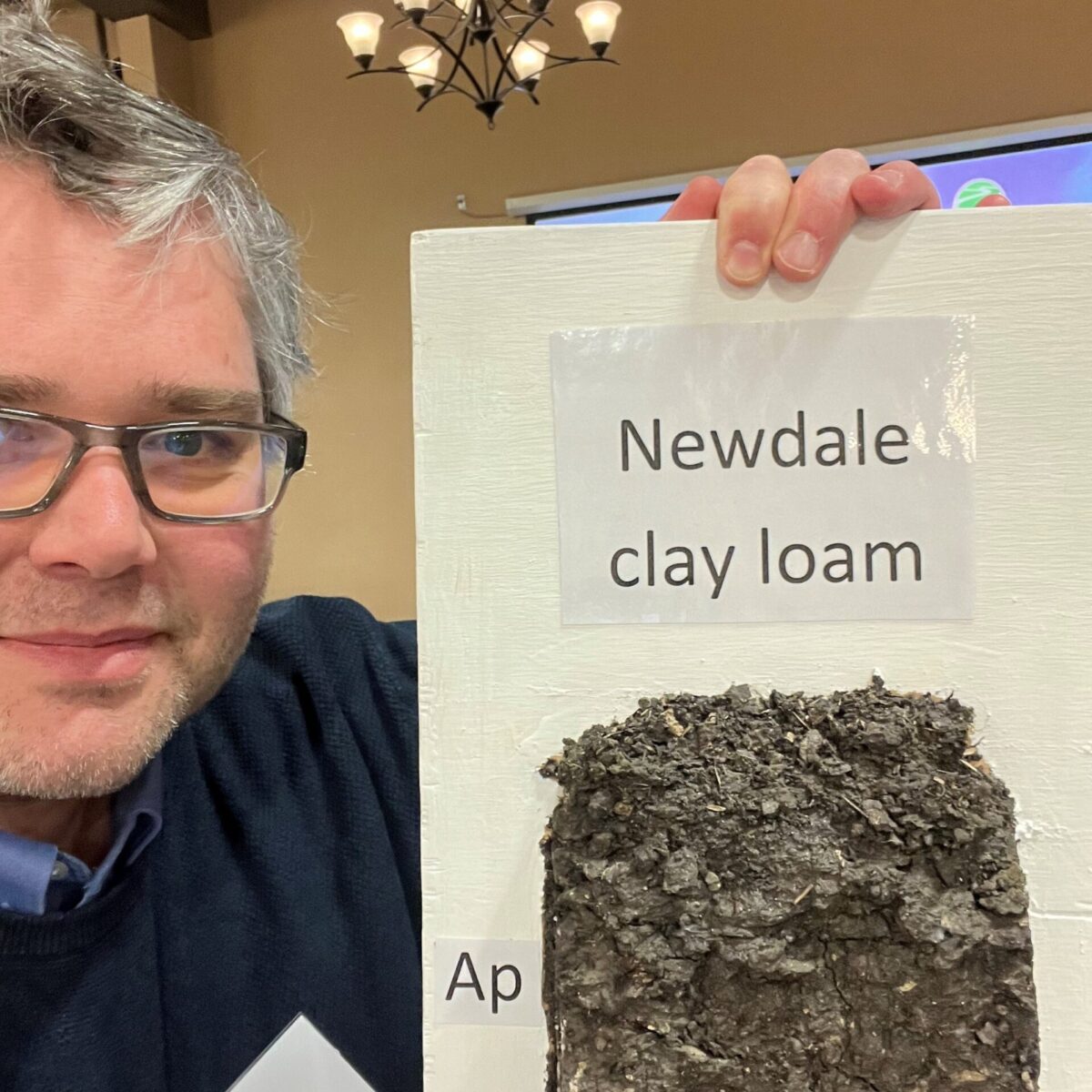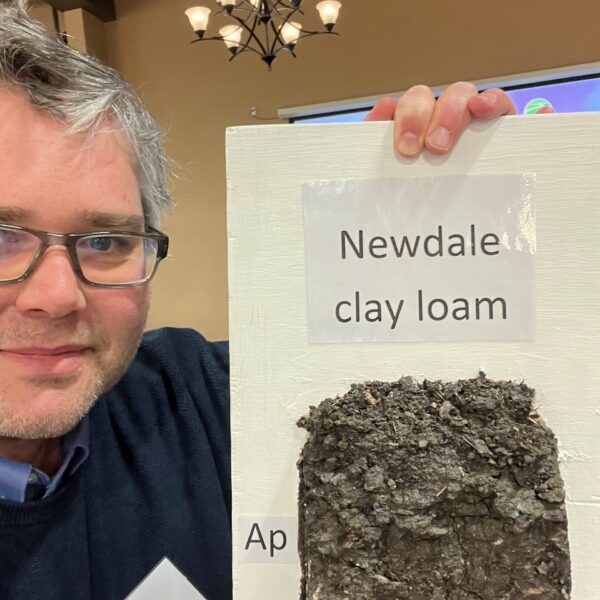Stephen Crittenden, research scientist, Agriculture and Agri-Food Canada


Stephen Crittenden is a research scientist in soil health and nutrient management, as well as lead of the Soil, Water, and Crop Production Science team, at Agriculture and Agri-Food Canada’s (AAFC) Brandon Research and Development Centre (RDC). He grew up in Collingwood, ON, and has worked in several countries, gaining a unique understanding of agricultural practices around the world.
Crittenden completed his master’s at the University of Guelph and his post-doctoral work at Cornell University in New York State. He spent time working in Rome and France before completing his PhD at Wageningen University in the Netherlands, where he worked on tillage systems and soil quality.
Crittenden now calls Brandon home, where he lives with his wife and two kids.
What is the best part about your job?
I take being a public servant seriously. Whether it’s communicating with media, commodity groups or farmers, or trying to produce science-based information, it’s incredibly gratifying. That is where I see my role, trying to produce science-based information that will benefit Canadian farmers.
What got you interested in this area of work?
Soil health is a topic that came up over and over from farmers in Manitoba. People wanted to know what soil health information is important and what is relevant for their farm, how they can measure indicators themselves or, if working with a commercial lab, what indicators would be most relevant.
I really got interested in focusing on soil health here in Manitoba because that’s what I kept hearing was important to farmers.
Tell us a bit about what you’re working on at the Brandon RDC.
I’m a scientist, but I’m also lead of the Soil, Water, and Crop Production team. A big part of my role is facilitating the work of the team as a whole. We have hydrology and agrometeorology, we have some hydrological modelers, soil crop modeling, agronomy and economics.
We have a number of technicians working and running trials, taking samples and collecting data in the field, and we have technical staff in the labs working on plant and soil nutrient analysis, enabling us to track nutrients in all of these disciplines.
As a scientist, my role is to ask those fundamental questions that are relevant to Canadian farmers and to try to answer them in a science-based way. This could be through writing funding proposals, data analysis or working on reports or manuscripts.
In a project funded by Manitoba Crop Alliance (Manitoba Corn Growers Association prior to the amalgamation) and Manitoba Pulse and Soybean Growers, we looked at the utility of soil health indicators for yield and protein in corn, soybeans and canola. We are currently working on the analysis, but the tried-and-true indicators (spring soil nitrate tests, soil organic matter or phosphate tests) are still proving to be quite useful to differentiate between management systems and correlate relatively well with yield and protein.
What can you say about the value of farmers providing funding and support to your organization?
It is pivotal. I heard from farmers that soil health was one of the priorities they felt they wanted to better understand, which has directed the focus of my work. Working with the commodity groups gives us confirmation that the questions we are asking and what we are trying to accomplish is beneficial for farmers.
How does that farmer funding and support directly benefit farmers?
Soil health can provide a good foundation, literally and figuratively, for good crop performance. If a farmer is going to invest in soil testing, the work we are doing can help you pick which soil health indicators are relevant for your crop yield and protein.
An old adage that used to hang on a professor’s door at the University of Guelph said, “Soil test, don’t guess.” You can get a lot of information relatively easily with a soil test or two.
How do you spend your time outside of work?
Chasing after my two kids!
What gets you excited about work?
One thing I will mention is social media. I love reading all the posts about planting or harvest progress, current issues or other concerns relating to my work – from farmers and commodity groups to ag media. It’s not just about me trying to share what I’m doing, it’s very much about learning what else is going on in the industry and, indeed, trying to focus my work on what would be relevant for farmers. I have found it to be a beneficial tool.
What are you excited about for the future of agriculture?
Trying to provide updated and useful information farmers can base their decisions on. One new method we are working on is called soil spectroscopy. It’s infrared spectroscopy: you basically shine infrared light on soil and can get a lot of information about carbon, texture and salinity. We are trying to expand the number of properties we can predict with spectroscopy.
All our work is with the aim of trying to better our soil testing methods and regimes, and the information we provide to farmers. In a nutshell, that’s what gets me excited about the future – updating the fertility aspect of it, developing new indicators or understanding indicators that are out there, or trying to find new methods to do soil testing.
Follow @Steve_Crittende on X (formerly Twitter).
